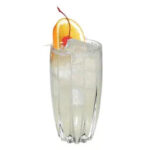John Prine, a name synonymous with poignant storytelling and deceptively simple melodies, penned his first tunes, “Sour Grapes” and “The Frying Pan,” at the tender age of 14. Even in his youth, he possessed the remarkable ability to channel both humor and heartbreak, much like his idols Hank Williams and Roger Miller. His experiences, from serving in the Vietnam War to his daily route as a mailman, became rich fodder for his songwriting. Songs like “Hello in There,” a tender portrayal of loneliness in elderly couples he encountered on his mail route, and “Sam Stone,” a devastating narrative of a drug-addicted veteran, are just a few examples of his profound observations of life. Prine wrote for the working class, the heartbroken, the elderly, and the lost souls. His style, often compared to John Steinbeck’s, was seemingly straightforward yet profoundly impactful. Many tried to imitate it, but his unique magic remained his own.
Despite his immense talent, Prine remained humble and gave few interviews. However, his insightful conversation with Paul Zollo for Bluerailroad offers a masterclass in songwriting. “I think the more the listener can contribute to the song, the better; the more they become part of the song, and they fill in the blanks,” Prine shared with Zollo. “Rather than tell them everything, you save your details for things that exist. Like what color the ashtray is. How far away the doorway was. So when you’re talking about intangible things, like emotions, the listener can fill in the blanks and you just draw the foundation. I still tend to believe that’s the way to tackle it today.”
Indeed, there’s hardly a subpar John Prine song to be found. Here are 25 of his best, each a testament to his songwriting genius.
1. “Angel From Montgomery” (1971)
Image Credit: Denise Sofranko/Michael Ochs Archives/Getty Images
Perhaps Prine’s most recognized song, “Angel From Montgomery,” paints an unforgettable portrait of “a middle-aged woman who feels older than she is.” The song’s sparse country-rock arrangement beautifully underscores the intricacy of Prine’s lyrics. He masterfully focuses on telling details – flies buzzing in the kitchen, a rodeo poster sparking youthful memories. The song’s candid depiction of marital stagnation and midlife depression was groundbreakingly honest for its time. “Angel From Montgomery” transcended genres, becoming a country standard, most famously covered by Bonnie Raitt. Raitt’s slow, soulful rendition emphasized the song’s undercurrent of female longing. Her moving performance at the Grammys, during Prine’s Lifetime Achievement Award tribute, further cemented the song’s legacy. J.D.
2. “Illegal Smile” (1971)
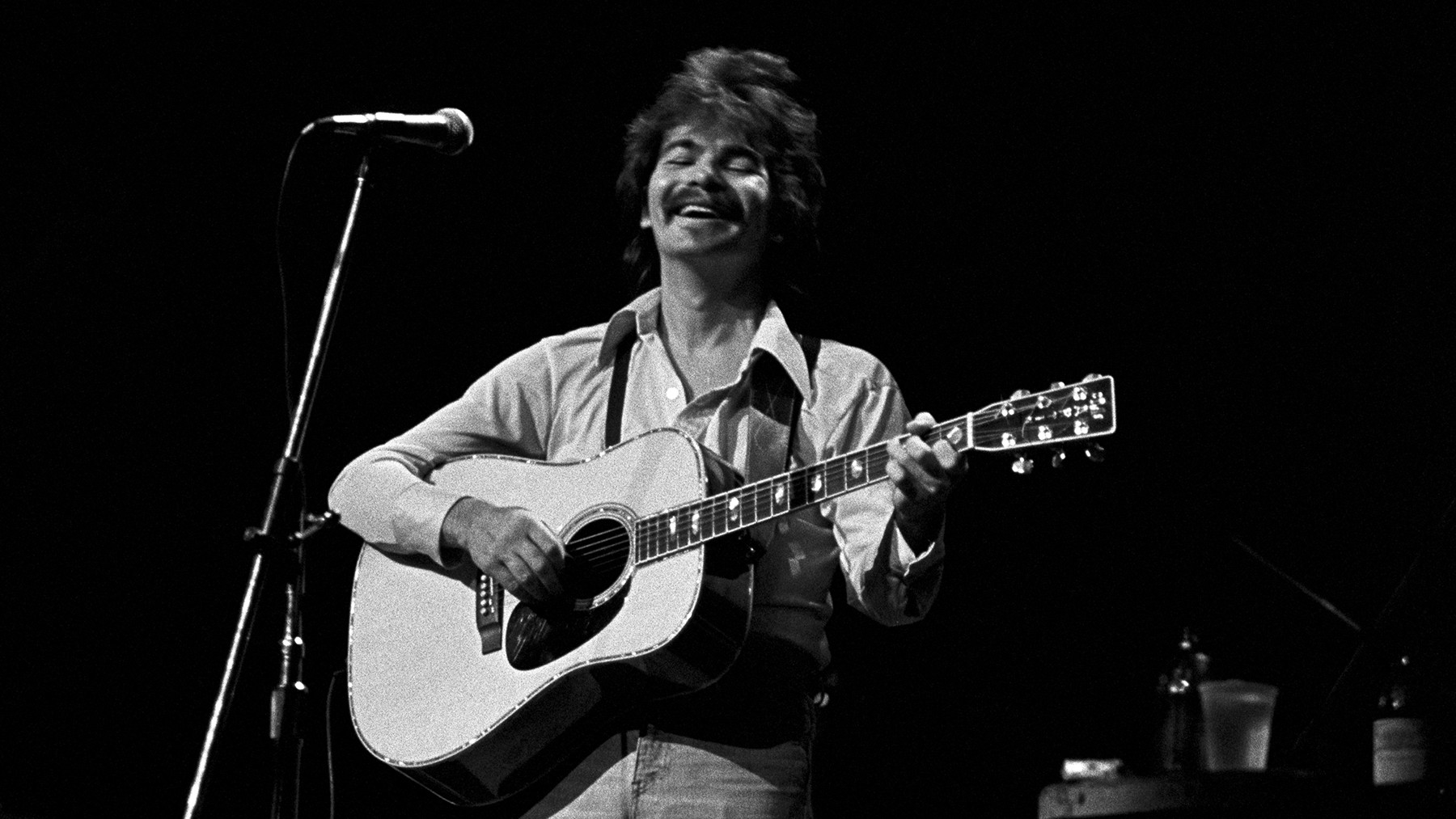 John Prine performing Illegal Smile in Atlanta, Georgia in 1975, a song often misinterpreted as a weed anthem
John Prine performing Illegal Smile in Atlanta, Georgia in 1975, a song often misinterpreted as a weed anthem
Image Credit: Tom Hill/Getty Images
The opening track from Prine’s self-titled debut in 1971, “Illegal Smile” became an unexpected anthem for weed smokers, despite Prine’s claims to the contrary. Lyrics about possessing “the key to escape reality” and brushes with the law might suggest otherwise. However, it’s Prine’s infectious rhythmic delivery that truly makes the song intoxicating. He phrases it with a childlike sing-song quality, emphasizing the last two syllables of each line: “I chased a rainbow down a one-way street — dead end/And all my friends turned out to be insurance — sales men.” The imagery is dreamlike throughout, and Prine’s ad-libbed rhymes at the song’s conclusion amplify this sense of childlike wonder: “Well done/Hot dog bun/My sister’s a nun.” Pure, unadulterated fun. J.H.
3. “Spanish Pipedream” (1971)
Image Credit: Michael Ochs Archives/Getty Images
“Spanish Pipedream” is brimming with advice within Prine’s narrative of a soldier and a topless dancer who elope to embrace a simpler life. Key takeaways include: blow up your TV, throw away your paper, go to the country, build you a home. This advice resonates deeply today, even if increasingly difficult to realize – it’s a pipe dream, after all, as Rolling Stone noted in their 1971 review of Prine’s debut album. While Prine may not have literally blown up his TV, he did express his frustration with it. Speaking to Performing Songwriter, he recounted, “I used to keep a small bowl of real fine pebbles that I picked up on my mail route, and if somebody said something really stupid on T.V. I’d throw some at the screen.” J.H.
4. “Paradise” (1971)
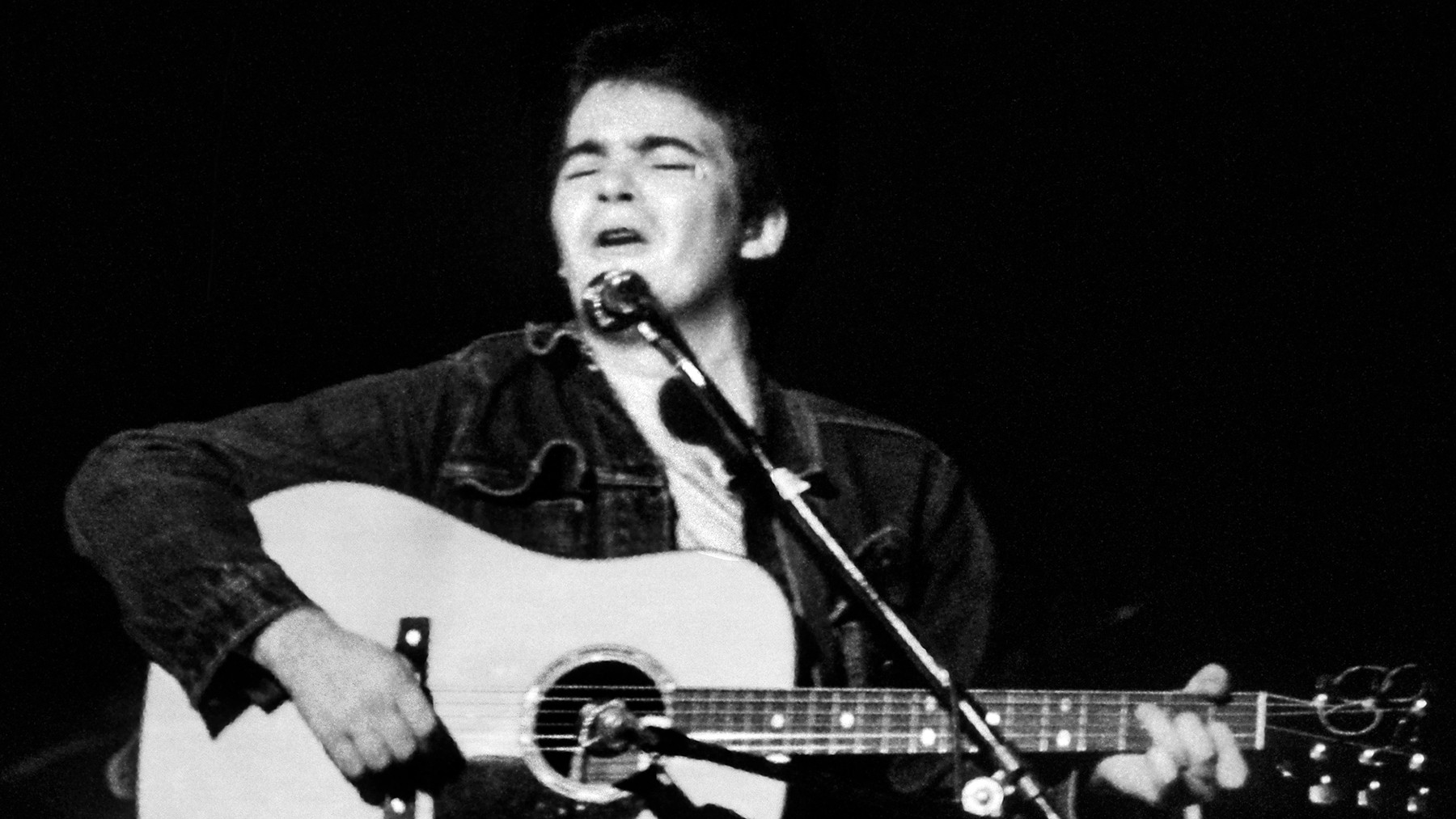 John Prine performing Paradise in Boulder, Colorado in 1972, a song about his family's hometown and environmental destruction
John Prine performing Paradise in Boulder, Colorado in 1972, a song about his family's hometown and environmental destruction
Image Credit: Ron Pownall/Getty Images
“Paradise” is both a heartfelt remembrance of home and a stark commentary on capitalist exploitation. It’s Prine’s poignant ode to the small mining town in Western Kentucky where his parents first met. “Peabody Coal and Mining bought up all the land down there, and they tore the whole town down; they strip-mined it,” Prine explained when introducing the song during a 1970 performance later released in The Singing Mailman Delivers (2011). It unexpectedly became a beloved standard, recorded by icons like the Everly Brothers, John Denver, and Johnny Cash. Prine himself was surprised by its success, admitting, “I wasn’t even going to record it because I didn’t think anybody would be able to pronounce ‘Muhlenberg,’ ” J.D.
5. “Sam Stone” (1971)
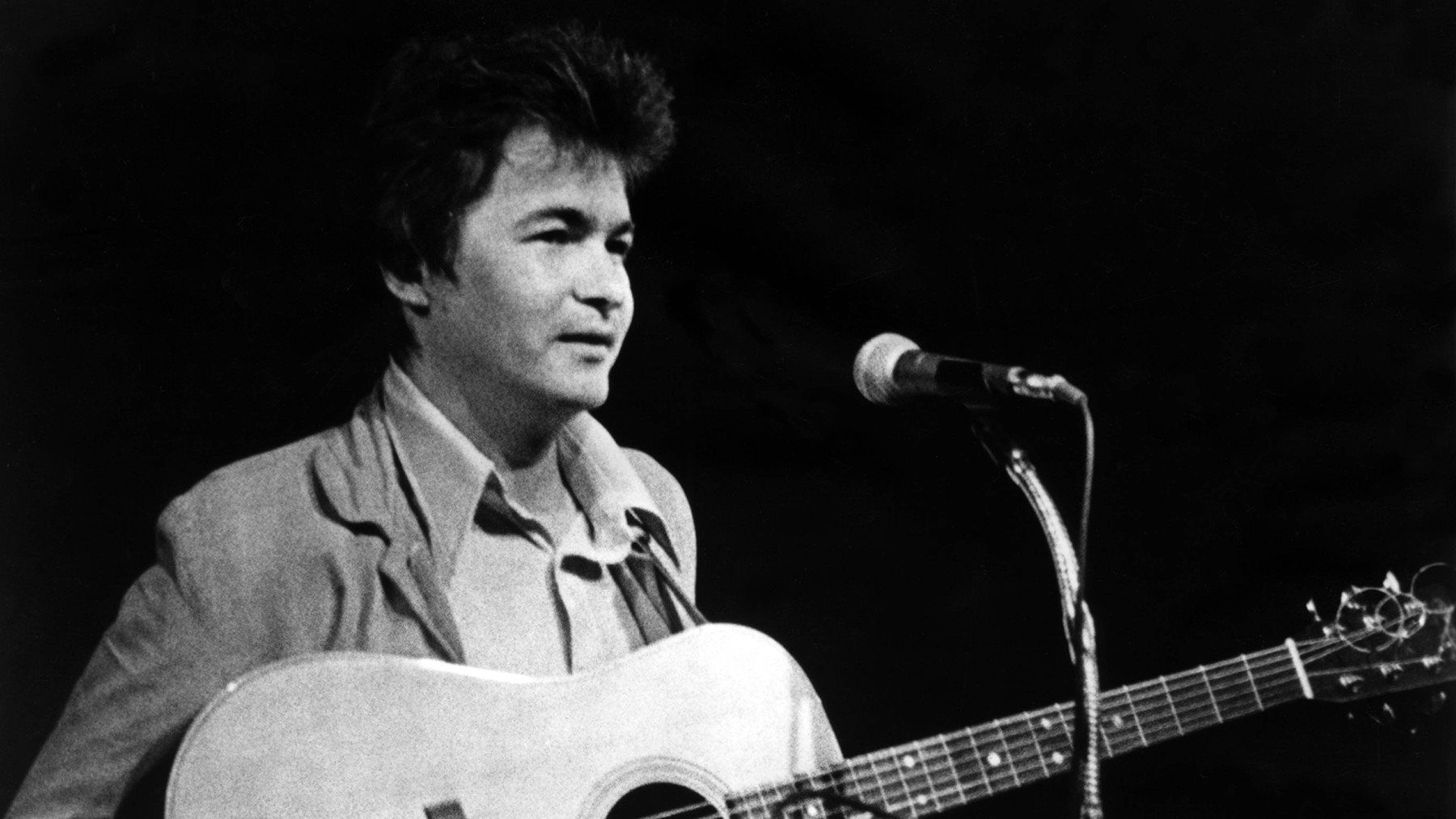 John Prine Sam Stone, a powerful song about a veteran's struggle with addiction
John Prine Sam Stone, a powerful song about a veteran's struggle with addiction
Image Credit: Charlie Gillett/Redferns/Getty Images
Shortly after returning from his own Army service, Prine penned the devastating “Sam Stone” for his debut album. This instantly became one of his signature songs, filled with gut-wrenching lines like, “There’s a hole in daddy’s arm where all the money goes/Jesus Chris died for nothin’, I suppose.” Years later, Prine revealed to Rolling Stone that this couplet was the lyric he was most proud of in his entire career. “A lot of soldiers came home and got hooked on drugs,” he explained. “I was just trying to think of something as hopeless as that. My mind went right to, ‘Jesus Christ died for nothin’, I suppose.’ I said, ‘That’s pretty hopeless.’” J.B.
6. “Hello in There” (1971)
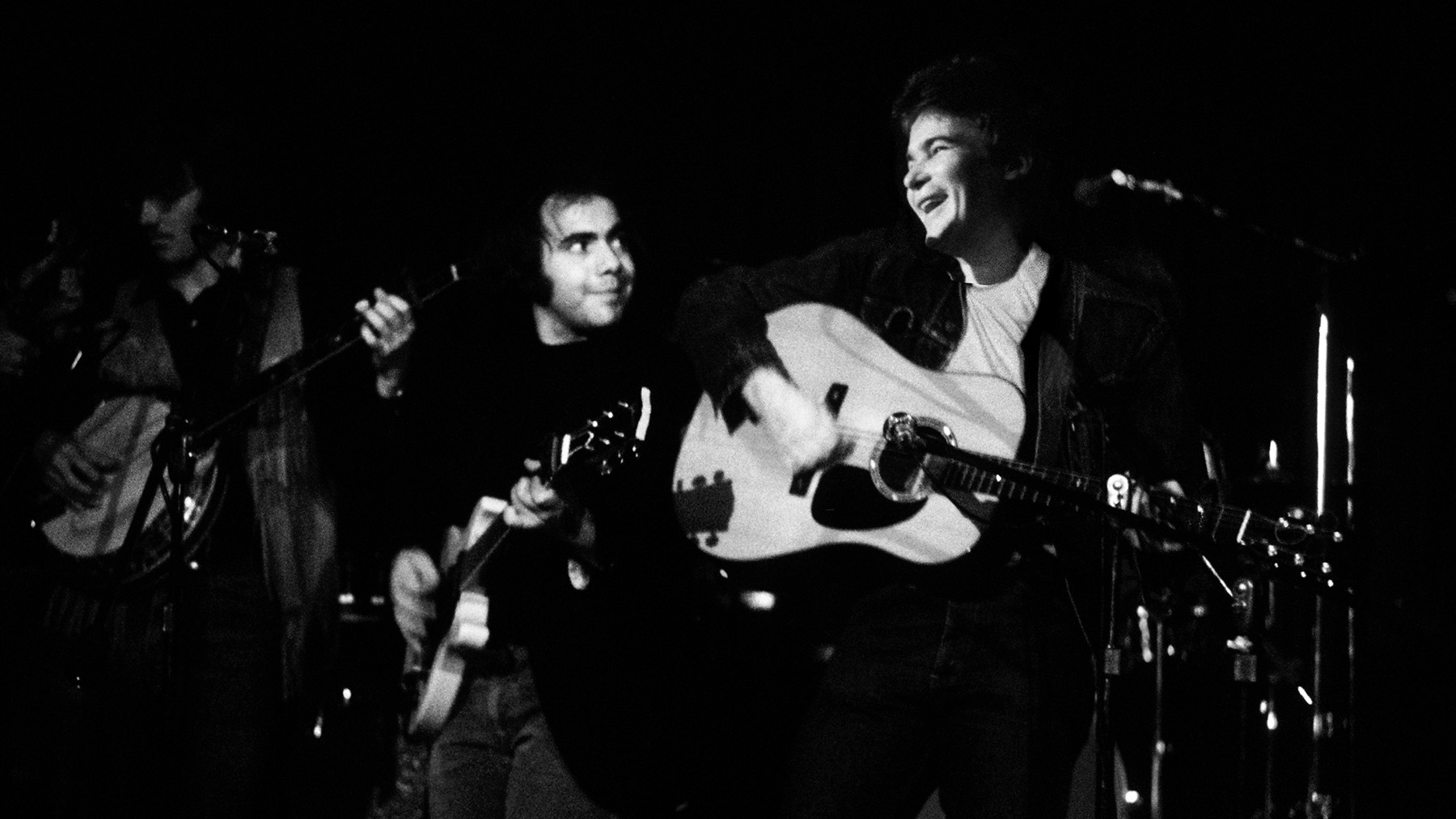 John Prine and Steve Goodman performing Hello in There in Boulder, Colorado, a song about loneliness and empathy for the elderly
John Prine and Steve Goodman performing Hello in There in Boulder, Colorado, a song about loneliness and empathy for the elderly
Image Credit: Ron Pownall/Getty Images
Inspired by John Lennon’s heavily reverbed vocals on the Beatles’ “Across the Universe,” Prine envisioned “hollering through a hollow log, trying to get through to somebody.” This idea of reaching out across a vast divide blossomed into “Hello in There,” a uniquely empathetic song inhabiting the world of an elderly couple. From their memories of a shared apartment in younger years, to children grown and gone (or lost, like Davy, who died “in the Korean War/I still don’t know what for”), to their quiet, isolated present, Prine paints a vivid picture. True to folk tradition, Prine directly addresses the listener, urging us to connect: “So if you’re walking down the street sometime/And spot some hollow ancient eyes/Please don’t just pass ’em by and stare/ As if you didn’t care, say, ‘Hello in there, hello.’ ” J.D.
7. “Souvenirs” (1972)
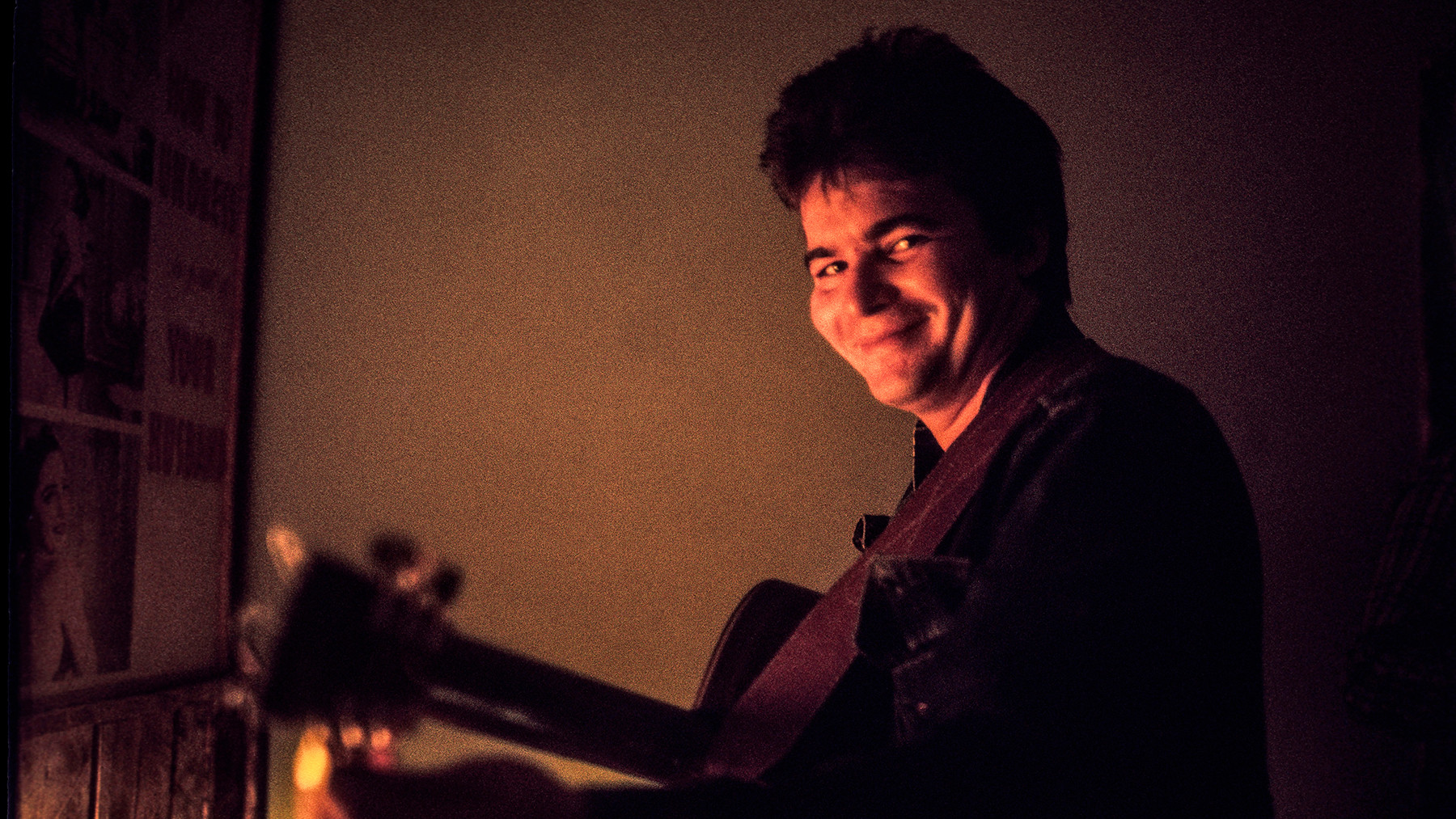 John Prine Souvenirs, a nostalgic song about memories and reflection
John Prine Souvenirs, a nostalgic song about memories and reflection
Image Credit: Ron Pownall/Getty Images
Prine crafted this beautiful reflection on nostalgia in his ‘65 Chevelle, en route to an early gig at the Fifth Peg in Chicago. Partially inspired by a childhood memory of fearing his brother was lost at a carnival, “Souvenirs” delves into the poignant nature of memories. “I thought I had come up with a pretty sophisticated melody in my head,” he recalled. “I was surprised to find out it had the same three chords that all my other songs have.” Prine often performed the song with his close friend and musical partner Steve Goodman (their live duet on Prine’s Great Days anthology is considered definitive). For years, Prine dedicated the song to Goodman whenever performing in Chicago. This two-verse tale of someone haunted by a lifetime of memories showcases Prine at his sentimental best, even coining a new word along the way: “Memories, they can’t be boughten.” J.B.
8. “Christmas in Prison” (1973)
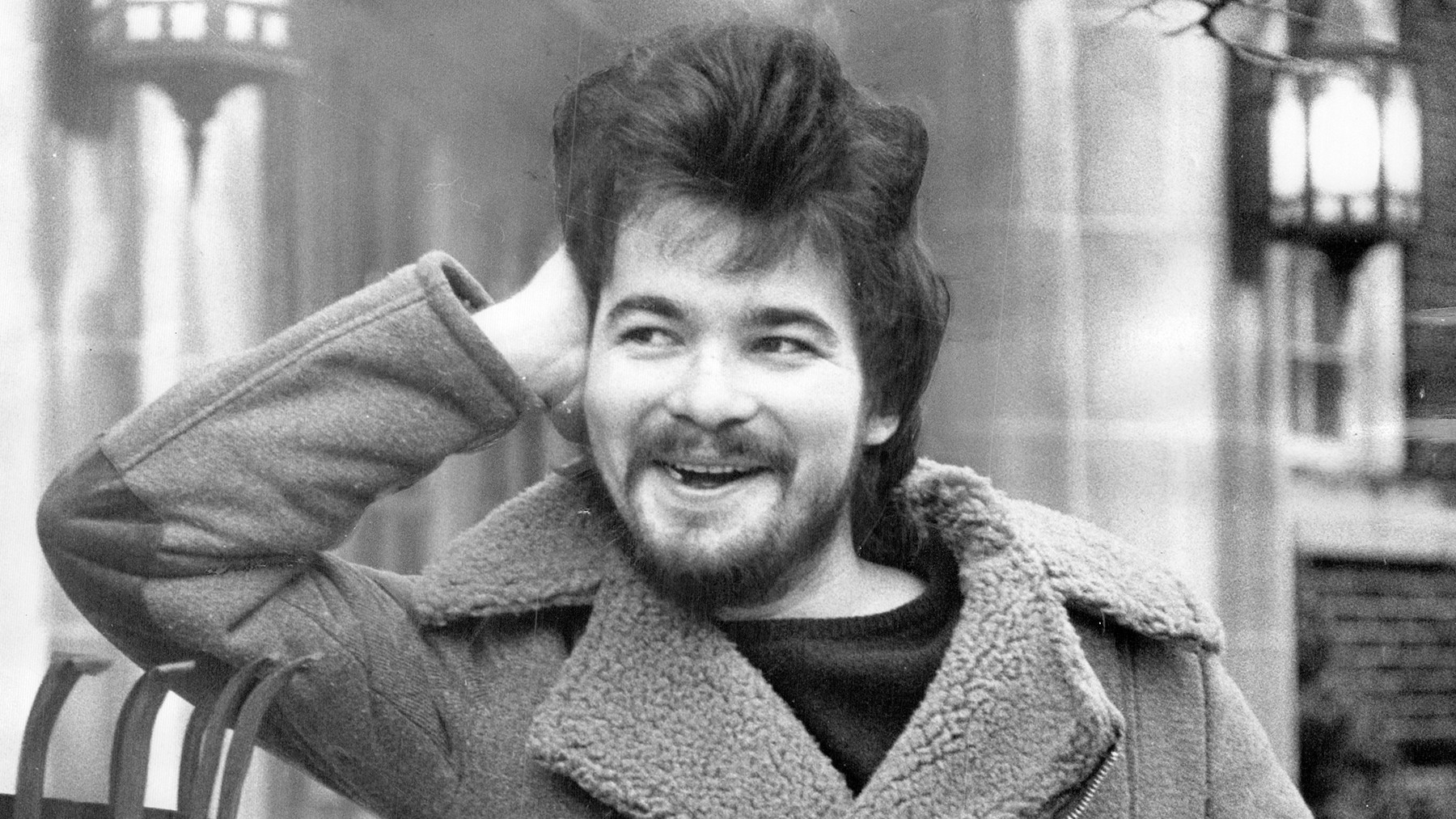 John Prine Christmas in Prison, an unconventional Christmas and love song
John Prine Christmas in Prison, an unconventional Christmas and love song
Image Credit: Boris Spremo/Toronto Star/Getty Images
Leave it to Prine to create an unconventional Christmas song and an unconventional love song simultaneously. “Christmas in Prison” seemingly tells the story of a homesick inmate longing for his lover, though Prine suggested the “prison” could be metaphorical: “It’s about a person being somewhere like a prison, in a situation they don’t want to be in,” he explained. “And wishing they were somewhere else. But I used all the imagery as if it were an actual prison.”
The melody is a sweet, sentimental waltz, while the lyrics are both humorous and strikingly evocative. The inmate yearns for his beloved, painting vivid images like notches on a cell wall: “She reminds me of a chess game/With someone I admire/Or a picnic in the rain/After a prairie fire.” Prine’s love for Christmas likely contributed to the holiday setting; as a bachelor, he famously kept a Christmas tree up in his home year-round. C.H.
9. “Mexican Home” (1973)
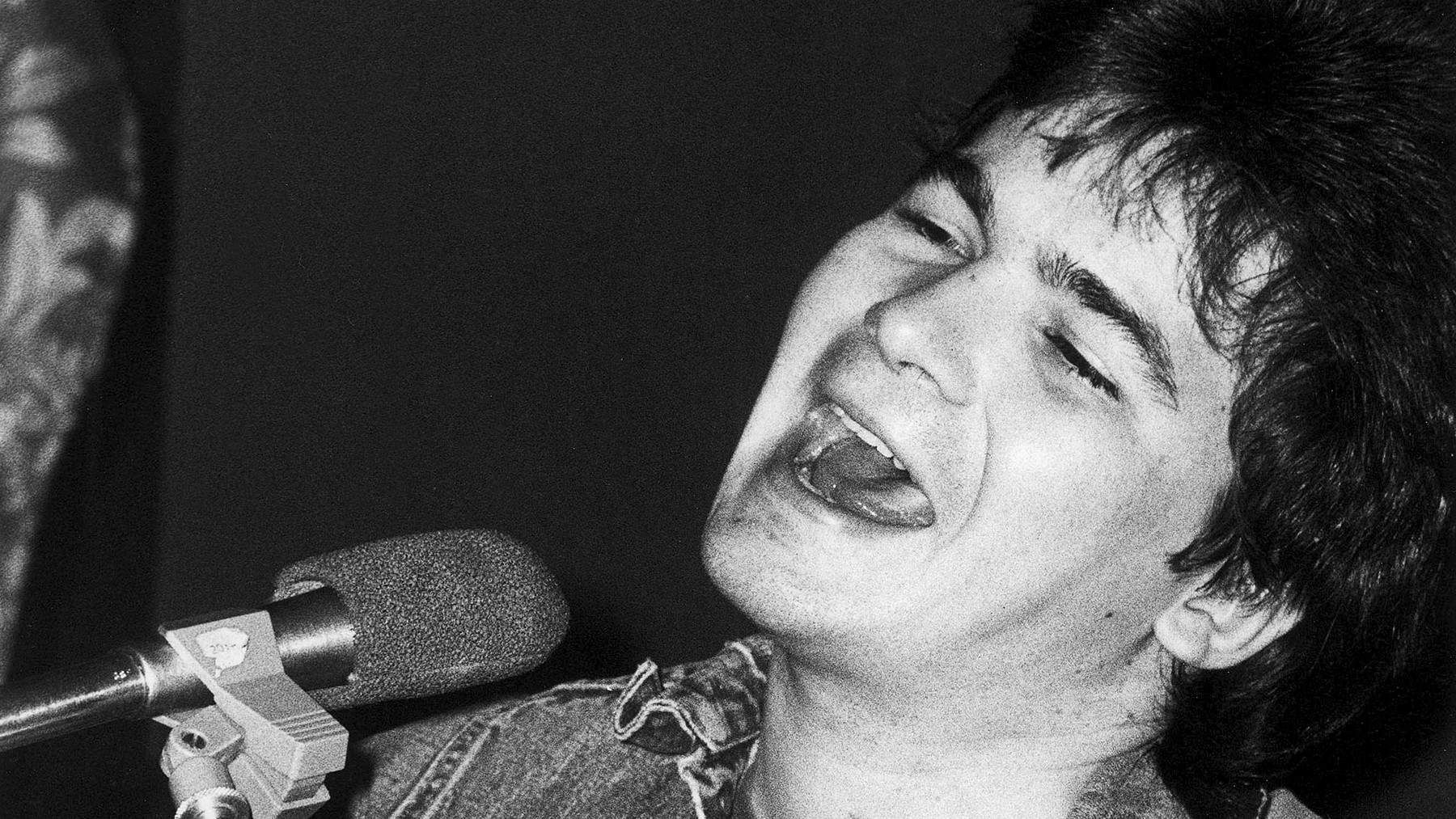 John Prine Mexican Home, a song reflecting on his father's passing and family roots
John Prine Mexican Home, a song reflecting on his father's passing and family roots
Image Credit: Michael Putland/Getty Images
Prine’s father, Bill, a factory worker and union president, introduced his son to country music. John often said he wrote with the hope of impressing his father, finally achieving this with “Paradise,” a song about his parents’ Kentucky home. Tragically, Bill Prine passed away from a heart attack on his front porch in Maywood, Illinois, just before John’s first album was released on Atlantic Records. John had been with him earlier that very day.
As he always did with life’s traumas, John channeled his grief into song. “Mexican Home” captures the helplessness, anxiety, and deep pain he felt. “The cuckoo clock has died of shock and the windows feel no pane,” Prine sings, “The air’s as still as the throttle of a funeral train.”
Through a series of somber observations, Prine only reveals the song’s true subject in the final verse: “My father died on the porch outside on an August afternoon/ I sipped bourbon and cried / With a friend by the light of the moon.” P.D.
10. “Blue Umbrella” (1973)
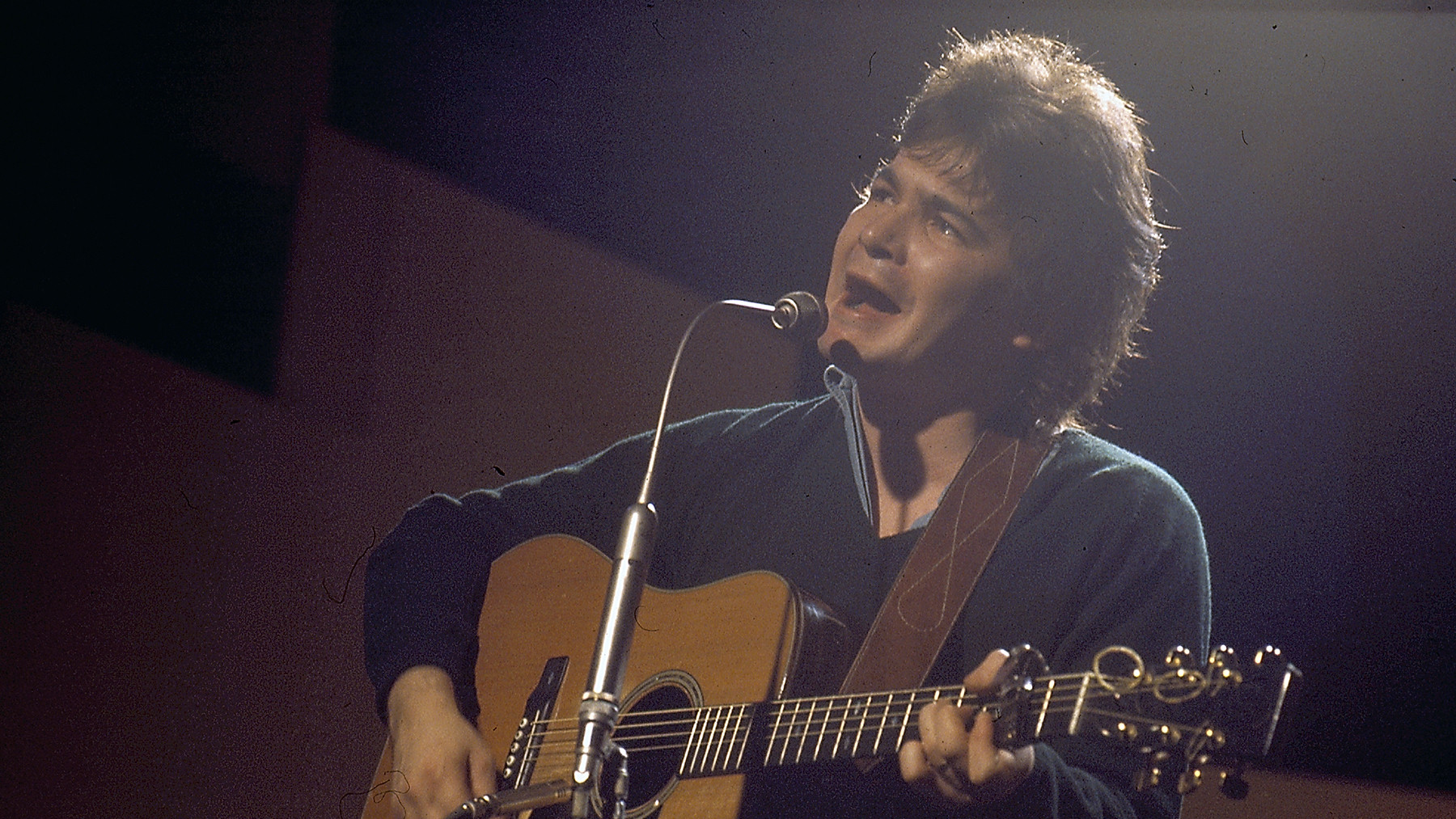 John Prine Blue Umbrella, a song about early heartbreak and lost love
John Prine Blue Umbrella, a song about early heartbreak and lost love
Image Credit: Tony Russell/Redferns/Getty Images
“Blue Umbrella” is a young man’s blues about an early breakup, the same heartbreak that inspired his debut album masterpiece, “Far From Me.” “The first time you get your heart busted, you never forgive,” he reflected years later. “Especially if you’re a writer.” This song was part of Prine’s early repertoire in Chicago’s folk scene, but he held onto it, eventually making it a poignant highlight of his third album, 1973’s Sweet Revenge. In this two-verse torch song, young heartbreak transforms into a torrential downpour, leaving Prine with only a “Blue Umbrella” to “hide the pain while the rain makes up [his] mind.” “Blue Umbrella” is most memorable for its chorus, capturing the feeling of being young, lost, and utterly alone: “Just give me one extra season,” Prine pleads. “So I can figure out the other four.” J.B.
11. “Bruised Orange (Chain of Sorrow)” (1978)
Image Credit: George Rose/Getty Images
This darkly surreal tale, “Bruised Orange (Chain of Sorrow),” is rooted in Prine’s real-life childhood trauma of witnessing the aftermath of a local altar boy’s death by a commuter train in Illinois. Prine juxtaposes this violent imagery, which bookends the song, with an unusually anthemic chorus (inspired by Bob Dylan’s “The Lonesome Death of Hattie Carroll”) about overcoming our worst instincts. A seemingly unrelated second verse describes kissing a black-haired girl on a park bench. “My head shouted down to my heart, ‘You better look out below,’” he sings. “When I’m writing, I’m never sure if it’s really facts I’m getting or if I’m making it up,” the songwriter shared in 2017. “There’s no line.” Years after its release, the altar boy’s parents wrote to Prine, thanking him for the song. J.B.
12. “Fish and Whistle” (1978)
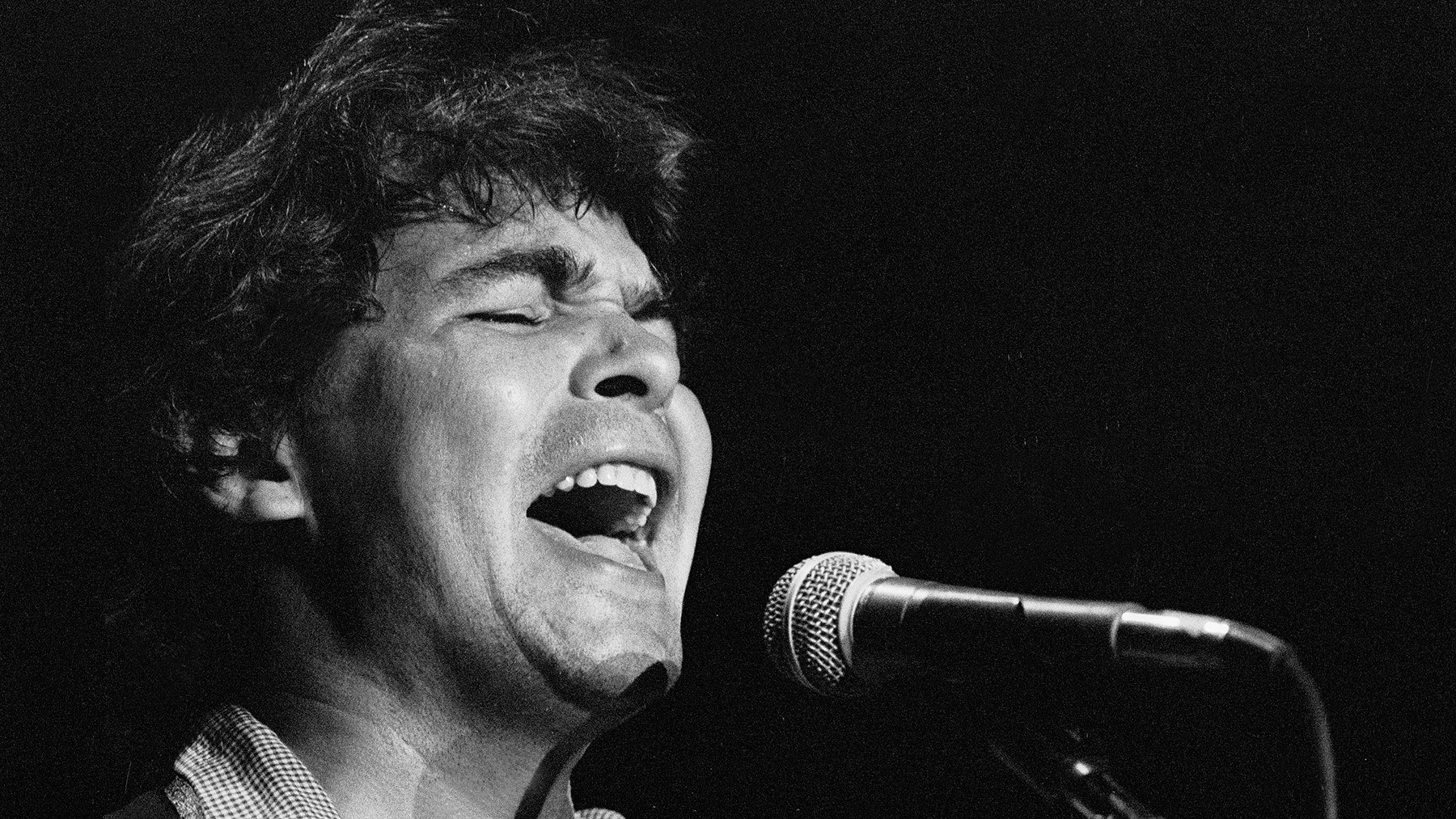 John Prine Fish and Whistle performing in Chicago in 1978, an upbeat song with autobiographical elements
John Prine Fish and Whistle performing in Chicago in 1978, an upbeat song with autobiographical elements
Image Credit: Paul Natkin/Getty Images
From Bruised Orange, his often-overlooked third album, “Fish and Whistle” is an upbeat stomper that weaves together snapshots from different phases of Prine’s life – his first job at a drive-in, his army service – unified by a chorus about the importance of forgiveness. The song overflows with humorous, real-life observations. “On my very first job I said ‘thank-you’ and ‘please’/They made me scrub a parking lot down on my knees/Then I got fired for being scared of bees/And they only give me fifty cents an hour.” Prine later admitted that his fear of bees, mentioned in the song, was indeed very real. P.D.
13. “It’s Happening to You” (1980)
Image Credit: George Rose/Getty Images
“It’s Happening to You” isn’t a grand literary work, but a concise, easygoing tune that effortlessly encapsulates the lifecycle of a relationship, from the first kiss to the final goodbye. It blends matter-of-fact honesty with genuine wonder at the often-clichéd depths of romantic rituals. “You know what they say/They pledge their love forever/Then they add a day,” he sings, adding his own wry perspective to a timeless songwriting theme. Rachel Peer’s subtle harmony vocals enhance the song’s bittersweet beauty. J.D.
14. “Unwed Fathers” (1984)
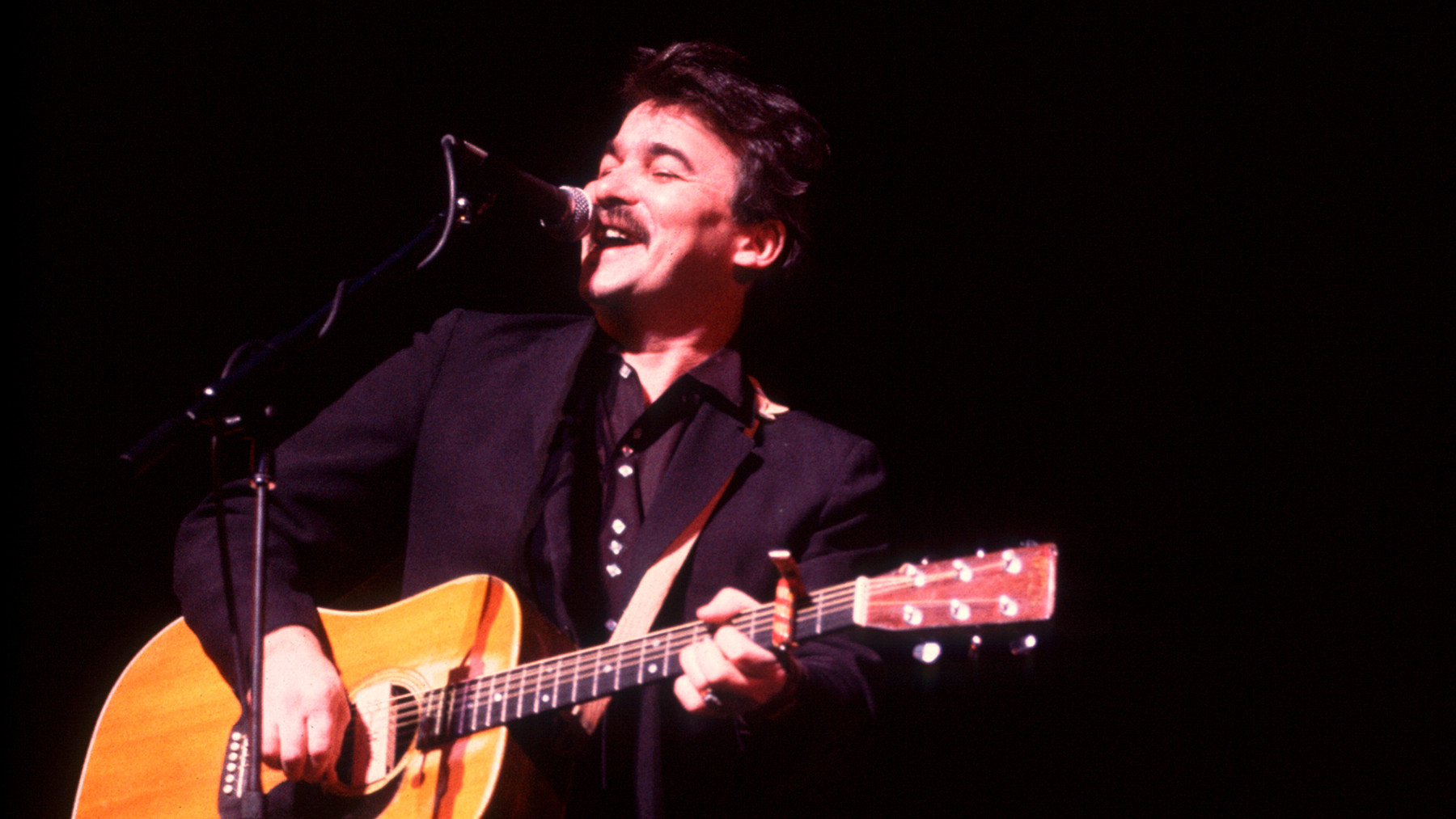 John Prine Unwed Fathers performing in Chicago in 1985, a song about double standards for single mothers
John Prine Unwed Fathers performing in Chicago in 1985, a song about double standards for single mothers
Image Credit: Paul Natkin/Getty Images
Prine co-wrote “Unwed Fathers,” a poignant commentary on the double standards faced by single pregnant mothers, with Nashville songwriting legend Bobby Braddock in the early 1980s. “I wrote down 15 titles, including one called ‘Children Having Children’ and ‘Unwed Fathers’” Prine later recounted. “I was reading the list off to him, and all the lights went on with those two. We kind of combined them and went right into it.” The song, later recorded by Tammy Wynette and Johnny Cash, became a highlight of his 1984 album Aimless Love, featuring Prine as a duet with his then-wife Rachel Peer. In later years, it became a duet staple for Prine, often performed with artists like Margo Price, Iris DeMent, and Amanda Shires. J.B.
15. “Let’s Talk Dirty in Hawaiian” (1986)
Image Credit: Paul Natkin/Getty Images
Written on a Nashville hotel patio and released on his 1986 album German Afternoons, “Let’s Talk Dirty in Hawaiian” is simultaneously a top-tier vacation song and a wonderfully playful sex song. It’s pure fun, brimming with clever and hilarious wordplay. “It’s a ukulele Honolulu sunset,” Prine sings, accompanied by geographically fitting instrumentation. “Listen to the grass skirts sway/Drinking rum from a pineapple/Out on Honolulu Bay/The steel guitars all playing/ While she’s talking with her hands/ Gimme gimme oka doka make a wish and wanta polka/Words I understand, hey!” He described it as “the kind of song that keeps you out of the shrink.” J.D.
16. “Speed at the Sound of Loneliness” (1986)
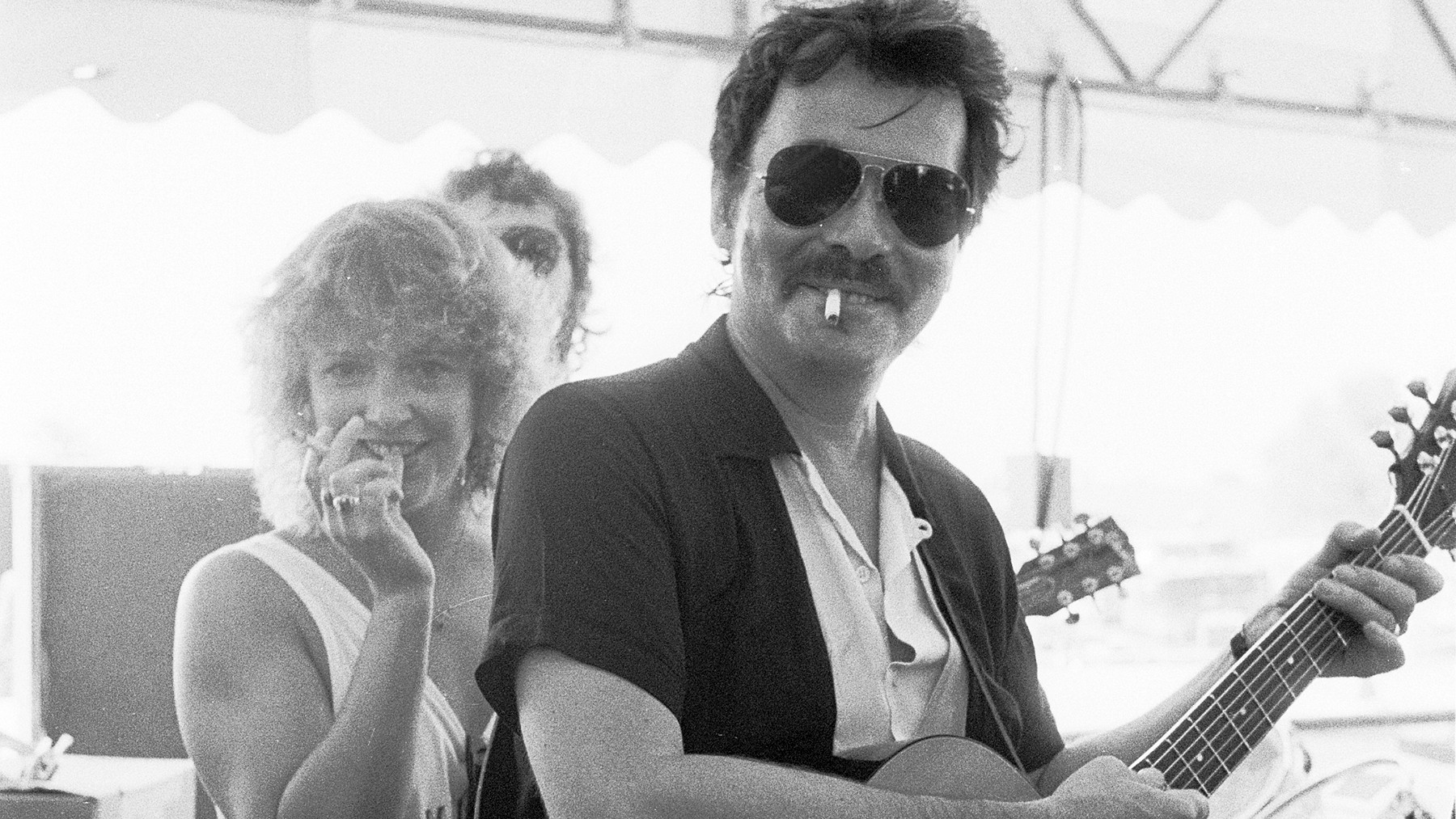 John Prine Speed of the Sound of Loneliness performing at Farm Aid in 1986, a heartbreaking ballad about romantic despair
John Prine Speed of the Sound of Loneliness performing at Farm Aid in 1986, a heartbreaking ballad about romantic despair
Image Credit: Paul Natkin/Getty Images
Born from the aftermath of a painful breakup, “Speed at the Sound of Loneliness” (1986) showcases John Prine at his most romantically desolate. “It was a song about a break up,” he explained in 2016. “I had a picture in my mind of one of the astronauts of the 1950s with his face all contorted by G-force. I was thinking of somebody’s heart being pulled apart by G-force like that.” Just as Bonnie Raitt made “Angel From Montgomery” famous, Nanci Griffith became closely associated with “Speed of the Sound of Loneliness,” featuring a duet with Prine on her 1993 album Other Voices, Other Rooms. The simple, three-chord devastation in this tale of lovers drifting apart is pure Prine, resulting in perhaps the most heartbreaking line in his entire catalog: “You come home straight/And you come curly,” he sang. “Sometimes you don’t come home at all.” J.B.
17. “The Sins of Memphisto” (1991)
Image Credit: Dave Peabody/Redferns/Getty Images
“Sins of Memphisto,” written last-minute during the creation of his 1991 LP, The Missing Years, is a beautifully relaxed, literary tour-de-force. It’s filled with classic Prine rhymes (“Sally used to play with here Hula Hoops/ Now she tells her problems to therapy groups”), absurdist imagery, and keen observations of everyday life, all woven into a meditation on love, aging, youthful freedom, and lost innocence. The song’s characters range from Adam and Eve and Lucille Ball and Ricky Ricardo, to Esmeralda and the Hunchback of Notre Dame, a boy on a bike dreaming of escape, and a Grandpa “on the front lawn staring at a rake/Wondering if his marriage was a terrible mistake.” Delivered with a tender, late-afternoon gentleness, the song’s sometimes uncomfortable truths about life are as easy to swallow as a sip of Orange Crush. J.D.
18. “All the Best” (1991)
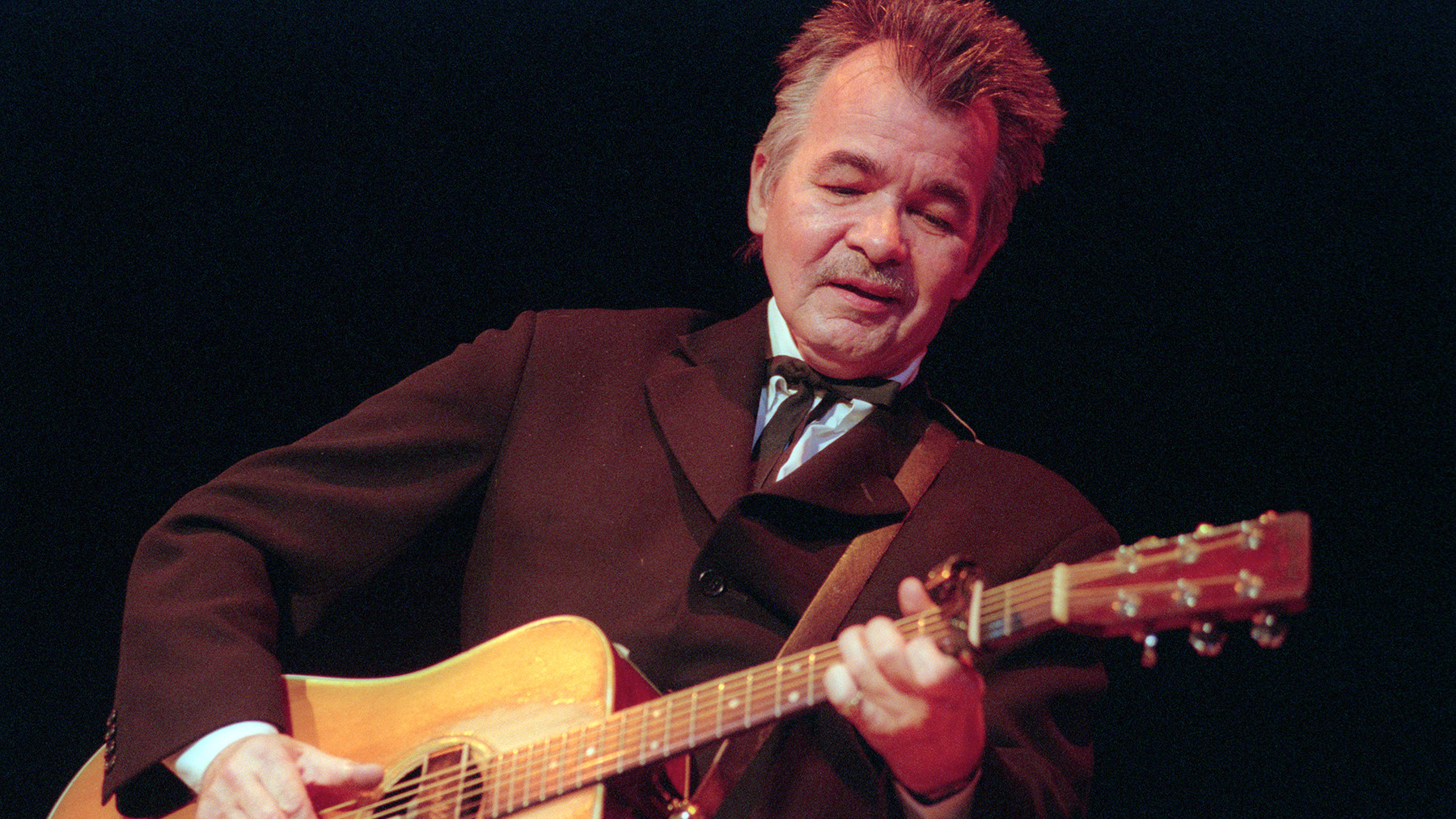 John Prine All the Best performing in Town Hall in 1999, a heartfelt song about divorce and healing
John Prine All the Best performing in Town Hall in 1999, a heartfelt song about divorce and healing
Image Credit: Hiroyuki Ito/Getty Images
Only John Prine could transform the story of his divorce from second wife Rachel Peer into one of his most generous and big-hearted songs. “All the Best” is a tale of heartbreak that finds healing through compassion. The song culminates in Prine’s devastatingly simple summation of the drifting apart of two people: “Your heart gets bored with your mind/And it changes you.” “All the Best” became a cornerstone of Prine’s 1991 comeback album The Missing Years, perfectly capturing the themes of lost love and the burgeoning romance with his future third wife, Fiona. “Having recently acquired my second divorce,” Prine joked before introducing “All the Best” in 1990, “about a month later the song truck pulled up and dumped a bunch of great songs on my lawn.” In other words, he had “so much love that he cannot hide.” J.B.
19. “Jesus the Missing Years” (1991)
Image Credit: David Redfern/Redferns/Getty Images
The Bible leaves an 18-year gap in Jesus’s life, from age 12 to 29. Prine decided to fill in those “Missing Years” with a surreal, seven-minute ballad in the style of Ramblin’ Jack Elliott. What was Jesus up to? According to Prine, he traveled Europe, had run-ins with the police, grew his hair long, watched Rebel Without a Cause, and invented Santa Claus. Furthermore: “He discovered the Beatles, recorded with the Stones, and once even opened up a three-way package in Southern California for old George Jones.” Jesus also meets an Irish bride, mirroring Prine’s own meeting with his wife Fiona in Dublin in the late Eighties. The narrative takes a darker turn as Jesus realizes he’s “a human corkscrew and all my wine is blood. They’re gonna kill me Mama, they don’t like me bud.” This is precisely why Dylan considered him a favorite songwriter; it’s a breathtaking piece of poetry that deserves study for generations to come. P.D.
20. “Lake Marie” (1995)
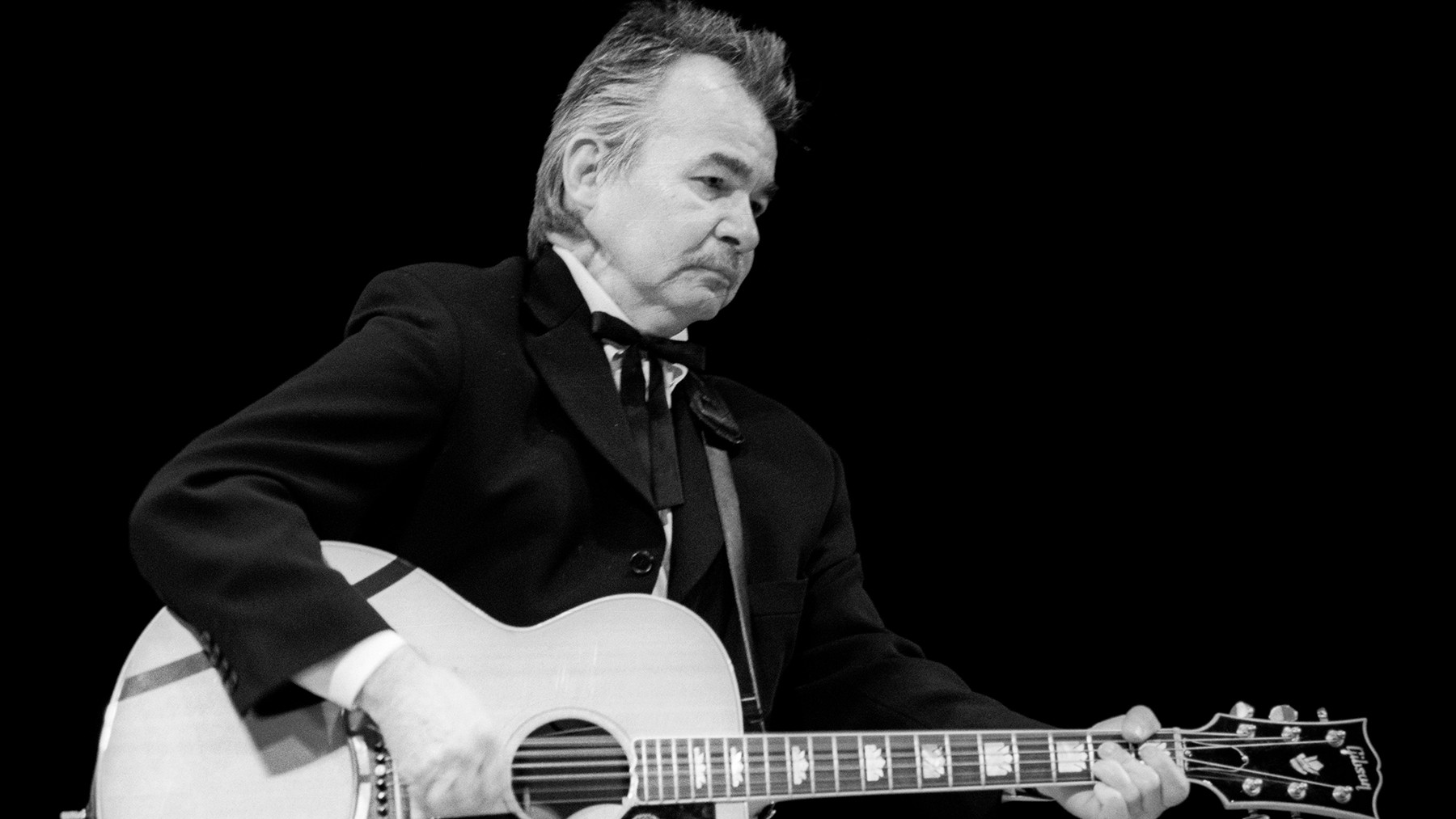 John Prine Lake Marie performing in Town Hall in 1999, a song weaving together local history, marital strife, and murder
John Prine Lake Marie performing in Town Hall in 1999, a song weaving together local history, marital strife, and murder
Image Credit: Hiroyuki Ito/Getty Images
“Prine’s stuff is pure Proustian existentialism,” Bob Dylan once famously said. “Midwestern mind-trips to the nth degree.” Dylan’s favorite Prine song, “Lake Marie,” perfectly exemplifies this. It masterfully blends three distinct narratives – the origin story of two lakes on the Illinois-Wisconsin border, a failing marriage, and a gruesome murder – into a modern folk tale with a catchy, singalong chorus. Prine researched the lakes (actually Lake Mary, not “Marie”) with a local historian, and the murder was inspired by disturbing TV news footage he remembered from childhood. Somehow, it all coalesces – light and dark, shadows and “peaceful waters” he keeps returning to. In classic Prine fashion, he injects humor with a perfectly timed laugh line: “Many years later we found ourselves in Canada/Trying to save our marriage and perhaps catch a few fish … whatever came first.” C.H.
21. “In Spite of Ourselves” (1999)
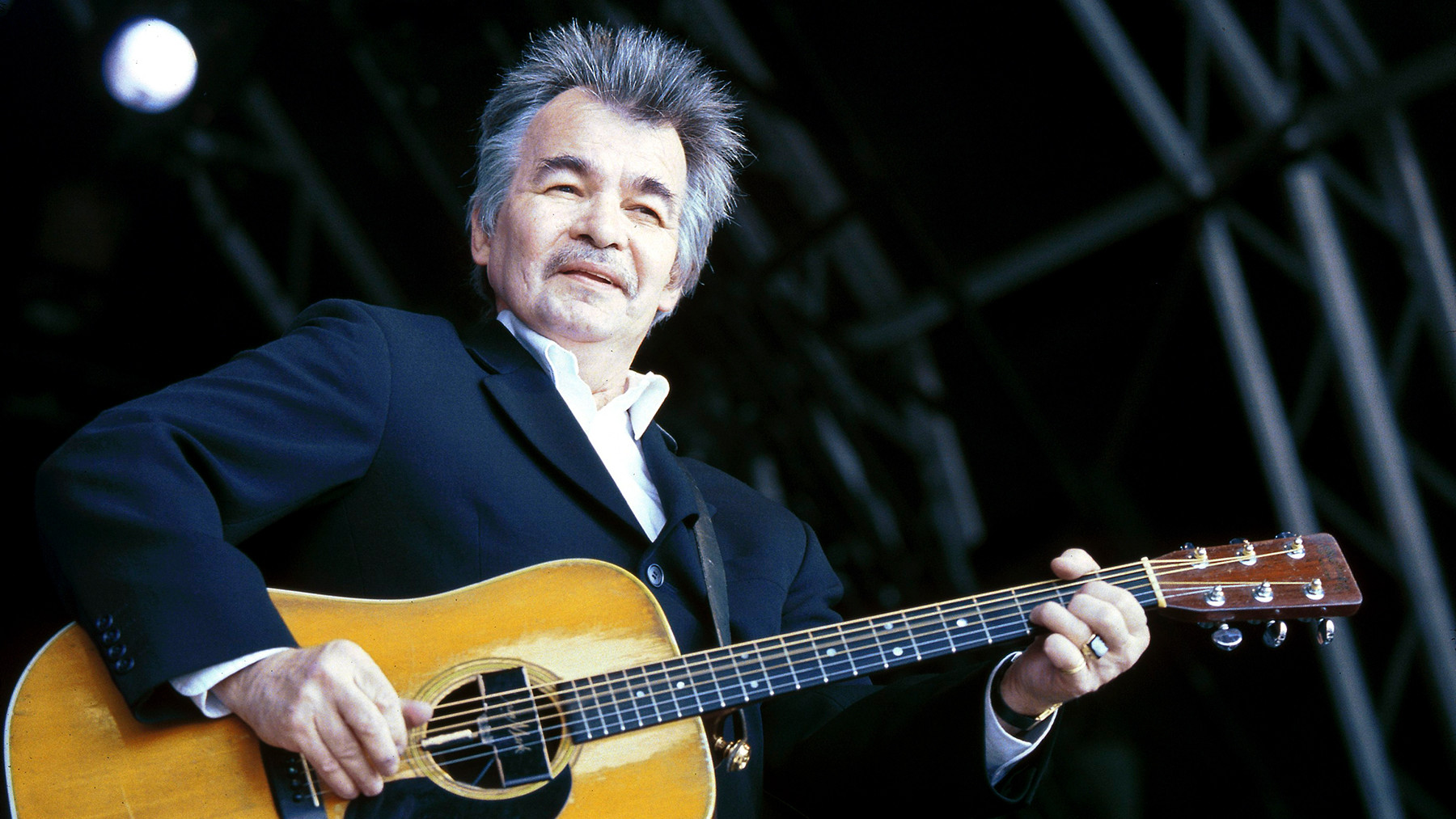 John Prine In Spite of Ourselves performing with Iris DeMent, a humorous and heartwarming duet about lasting love
John Prine In Spite of Ourselves performing with Iris DeMent, a humorous and heartwarming duet about lasting love
Image Credit: Andrew Lepley/Redferns/Getty Images
This duet with Iris DeMent, “In Spite of Ourselves,” is a he-said, she-said portrait of a long-term relationship, written with Prine’s signature warmth, detail, and humor. He sings about her dislike of runny eggs, her disdain for money, and how she finds his jokes “corny” (rhyming it with “convict movies make her horny”). She playfully calls out his beer-drinking and the time she caught him “sniffin’ my undies.” They may disagree on many things, but this couple knows each other’s quirks inside and out and loves each other deeply nonetheless. Prine wrote “In Spite of Ourselves” for the film Daddy and Them, where he and Billy Bob Thornton played brothers. He mentioned it was “real loosely” based on two characters in the film. Its theme of accepting and loving someone with all their flaws has made it a popular wedding song in recent years. C.H.
22. “Some Humans Ain’t Human” (2005)
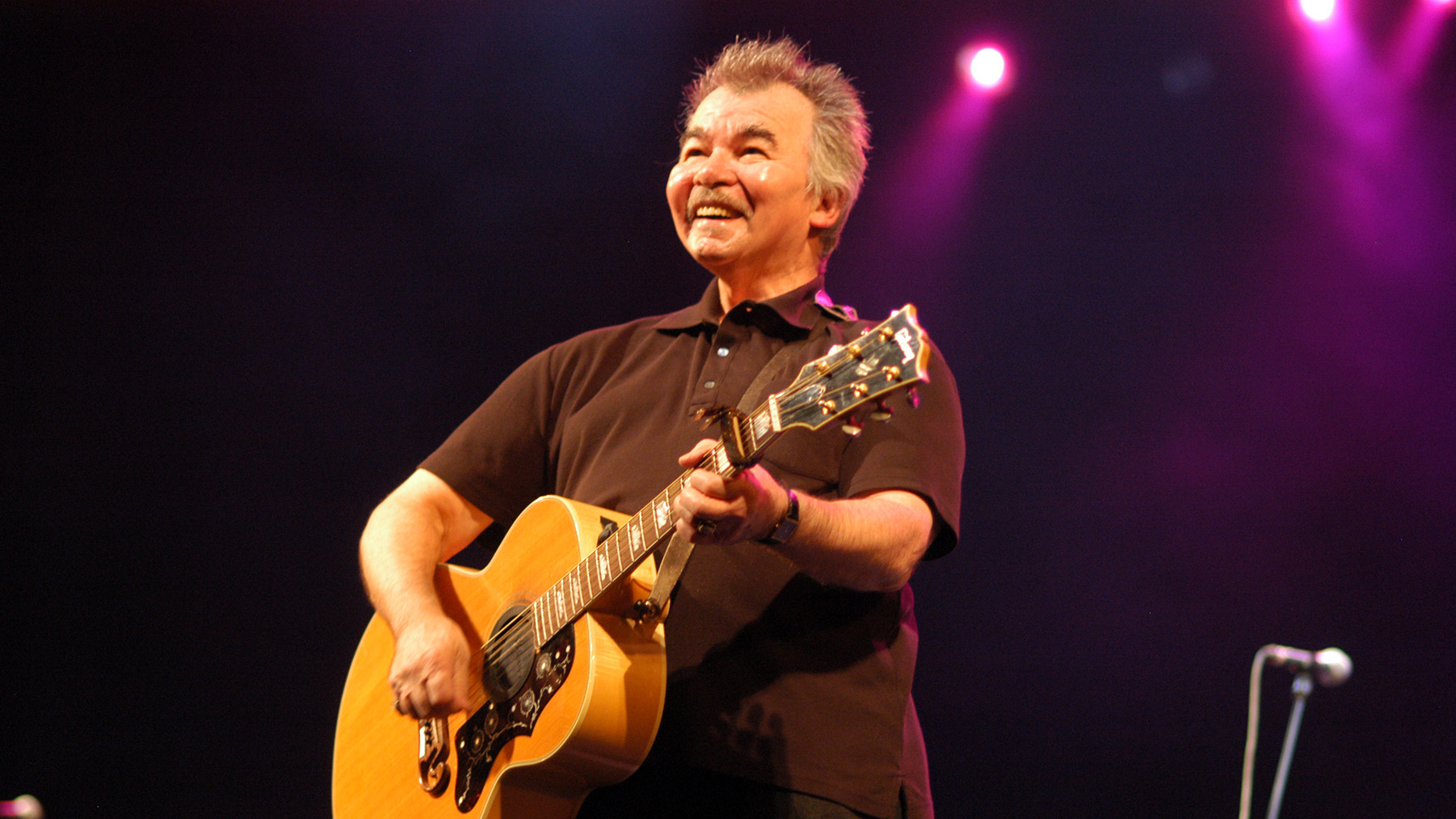 John Prine Some Humans Ain't Human performing in the UK, a politically charged song with gentle melody
John Prine Some Humans Ain't Human performing in the UK, a politically charged song with gentle melody
Image Credit: Harry Scott/Redferns/Getty Images
As a songwriter known for his kindness and humanity, Prine brings a unique sense of disheartened disbelief to “Some Humans Ain’t Human.” This mordantly funny takedown of Republican ideology during the Bush years, released amidst the Iraq War, is delivered with surprising gentleness. “You open their hearts and here’s what you’ll find,” he sings over a spare melody. “A few frozen pizzas/Some ice cubes with hair/A broken Popsicle/You don’t want to go there.” As political critiques go, it remains beautifully crafted, showcasing Prine’s ability to find beauty even when singing about ugliness. “During Vietnam, when you saw people on the street, you knew which side they were on,” Prine reflected. “But you don’t know anymore. It just got to the point where if you weren’t saying anything then people were taking it that you supported him, so I thought ‘Jeez, if I get hit by a bus I would sure like the world to know that I was not a Republican.’” J.D.
23. “Long Monday” (2005)
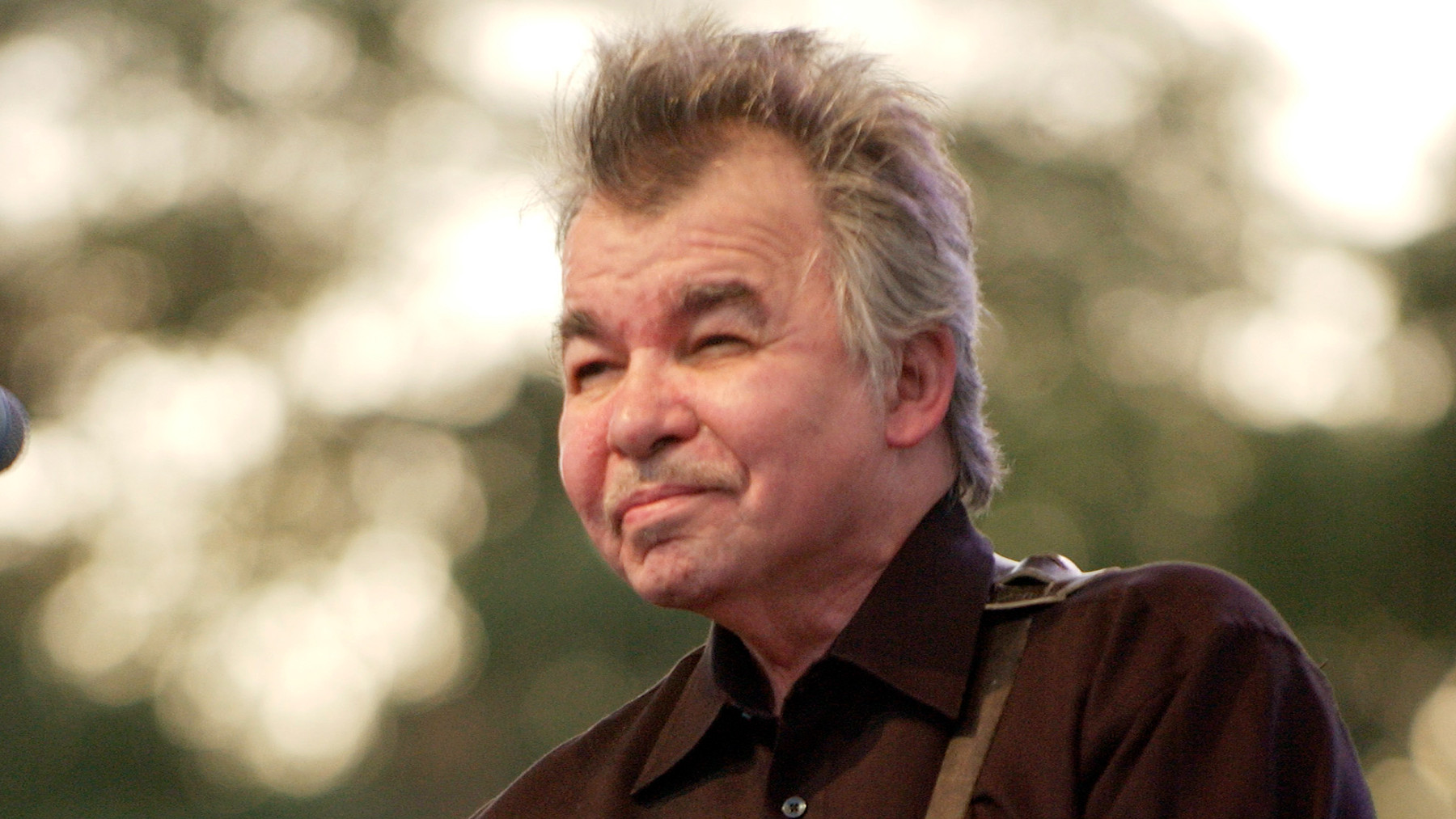 John Prine Long Monday, a nostalgic and melancholic ballad reflecting on relationships and time
John Prine Long Monday, a nostalgic and melancholic ballad reflecting on relationships and time
Image Credit: Tim Mosenfelder/Getty Images
Nostalgia and melancholy permeate Prine’s voice on Fair & Square, his first album after overcoming stage-four cancer. “Long Monday,” a standout track co-written with Keith Sykes, is a gorgeous ballad where Prine reminisces about the good times within a relationship, while subtly hinting at approaching darkness. “Radio’s on/Windows rolled up/And my mind’s rolled down,” Prine sings. The lyrics address a lover about to leave him home alone for the week. However, Prine, a touring musician who disliked being away from his family, may have been singing about himself and the transient nature of life on the road. P.D.
24. “Summer’s End” (2018)
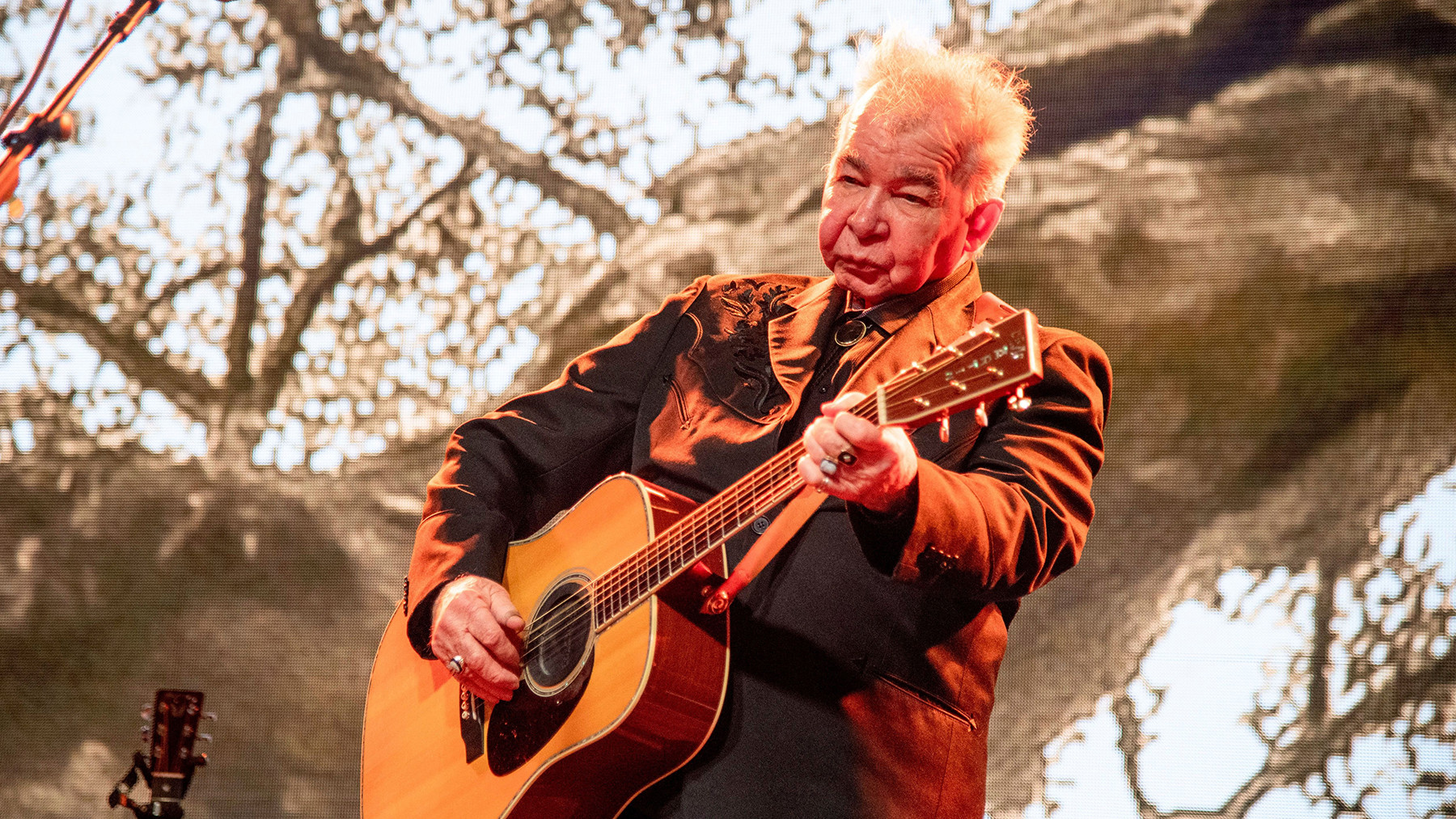 John Prine Summer's End performing at Bonnaroo, an emotional song about companionship and mortality
John Prine Summer's End performing at Bonnaroo, an emotional song about companionship and mortality
Image Credit: Amy Harris/Invision/AP/Shutterstock
“Summer’s End,” an ode to late-life companionship, is the emotional core of Prine’s 2018 triumph, The Tree of Forgiveness. The song opens with the simple image of swimsuits drying on a clothesline, evolving into a metaphor for the swift approach of mortality as summer fades. “Well, I don’t know, but I can see it’s snowing,” Prine sings, stretching the last word to emphasize his meaning. “There’s a natural sadness with that song because I do think about me and John,” his wife Fiona shared in 2018. “I think, ‘OK, we have had two seasons together, and we are going into the third season.’” Known for songs that could evoke laughter and tears in quick succession, “Summer’s End” leans purely into heartfelt emotion, with Brandi Carlile’s ethereal harmonies underscoring the yearning for peace in the song’s stark “come on home” chorus. As Prine choked out in the song’s climax, “Summer’s end came faster than we wanted.” J.B.
25. “When I Get to Heaven” (2018)
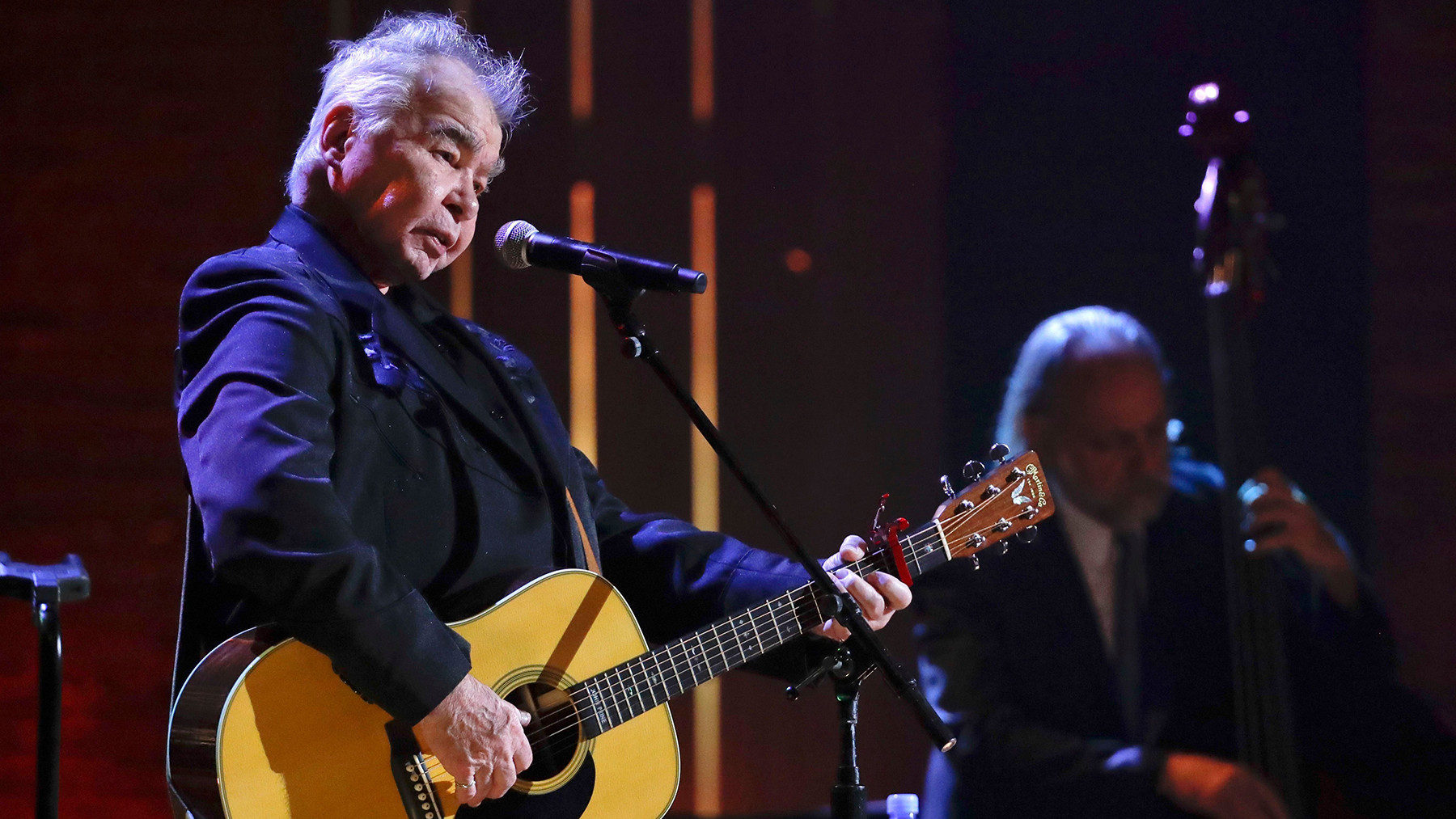 John Prine When I Get to Heaven, a humorous and joyful epitaph from his final album
John Prine When I Get to Heaven, a humorous and joyful epitaph from his final album
Image Credit: Mark Zaleski/AP/Shutterstock
Prine couldn’t have crafted a more fitting epitaph than “When I Get to Heaven,” the closing track of his final album. In spoken-word verses reminiscent of Hank Williams’ alter-ego Luke the Drifter, Prine details his plans for the afterlife: “When I get to heaven/I’m gonna shake God’s hand/Thank him for more blessings/Than one man can stand.” He lists his blessings: his supportive parents, his aunts and brother Doug, and even his critics (“those syphilitic parasitics,” he quips). Prine envisions opening a nightclub called the Tree of Forgiveness in heaven. Over a joyful, kazoo-filled chorus, he sings about ordering a “handsome Johnny” (his favorite drink: vodka and ginger ale) and “smoke a cigarette that’s nine miles long.” Mortality had long been a rich theme in Prine’s songwriting. When he sang about his own, it was with his signature blend of dark humor and lyrical precision: “When I get to heaven, I’m gonna take that wristwatch off my arm,” he sang. “What are you gonna do with time/After you’ve bought the farm?” P.D.
In conclusion, these 25 songs represent just a glimpse into the vast and profound catalog of John Prine. His ability to weave humor and heartbreak, the mundane and the profound, into deceptively simple yet deeply resonant songs solidified his place as a true songwriting legend. Explore these and many more John Prine Songs to fully appreciate the genius of this American master.

